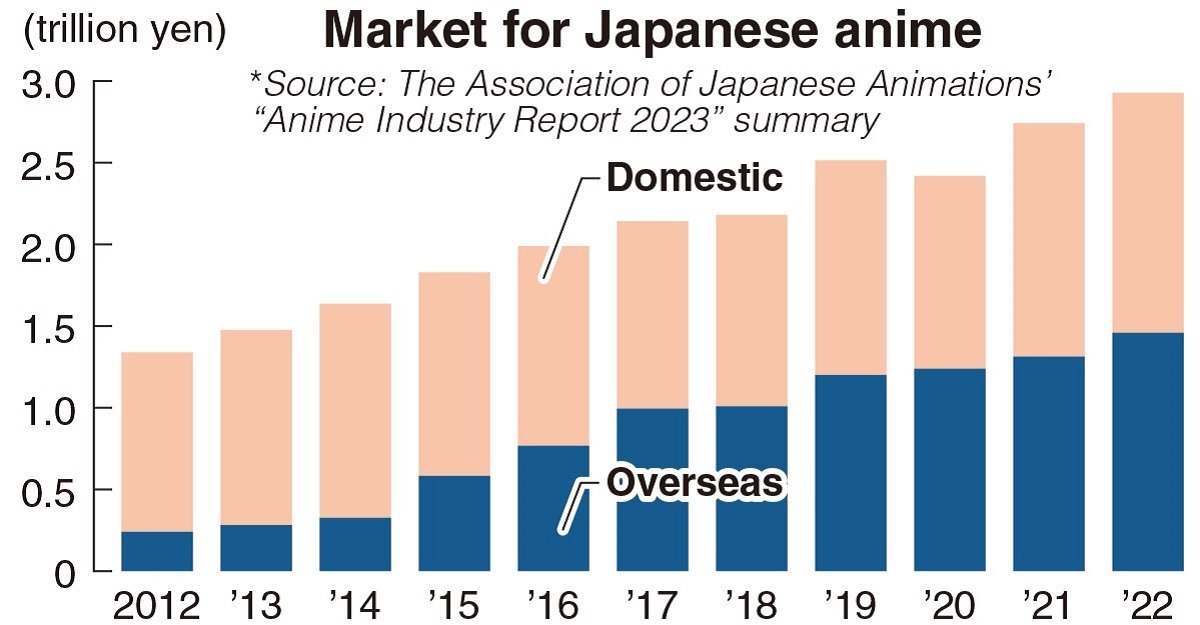The global rise of anime is a testament to the growing influence of Japan’s cultural export sector. Over the past decade, the anime market has expanded exponentially, with overseas sales seeing a dramatic increase.
As anime continues to gain popularity, especially in markets like the U.S., it has surpassed traditional entertainment industries, such as sports, in popularity among certain demographics. This trend is largely driven by the accessibility and convenience provided by streaming platforms, making it easier for fans around the world to discover anime without additional costs. The anime industry has found a unique way to transcend cultural barriers by focusing on universal storytelling.
Boost in Anime Popularity Overseas

Characters in anime are often relatable to audiences worldwide, and the diverse genres appeal to all ages, from children to adults. Anime’s ability to craft intricate narratives with complex characters—whether heroes or villains—has contributed to its widespread appeal. These elements allow anime to resonate with audiences across various cultures, making it a global phenomenon.
Streaming services, particularly during the COVID-19 pandemic, played a pivotal role in this expansion, providing audiences with easy access to anime. With platforms like Netflix, anime became more integrated into mainstream entertainment, leading to even greater international recognition. The appeal of anime is not merely in its animation style but in the depth of its stories and characters, which allow viewers from different countries to connect on a personal level.

In Japan, however, the global impact of anime is still underappreciated. As the influence of anime continues to grow, there is a growing call for Japanese citizens to recognize anime not just as a niche entertainment form but as a significant cultural export that holds economic and diplomatic value.
As more people from different countries are drawn to Japan for its culture, particularly through anime, it’s clear that Japan’s creative industries could become even more vital as global ambassadors of the nation’s soft power.





